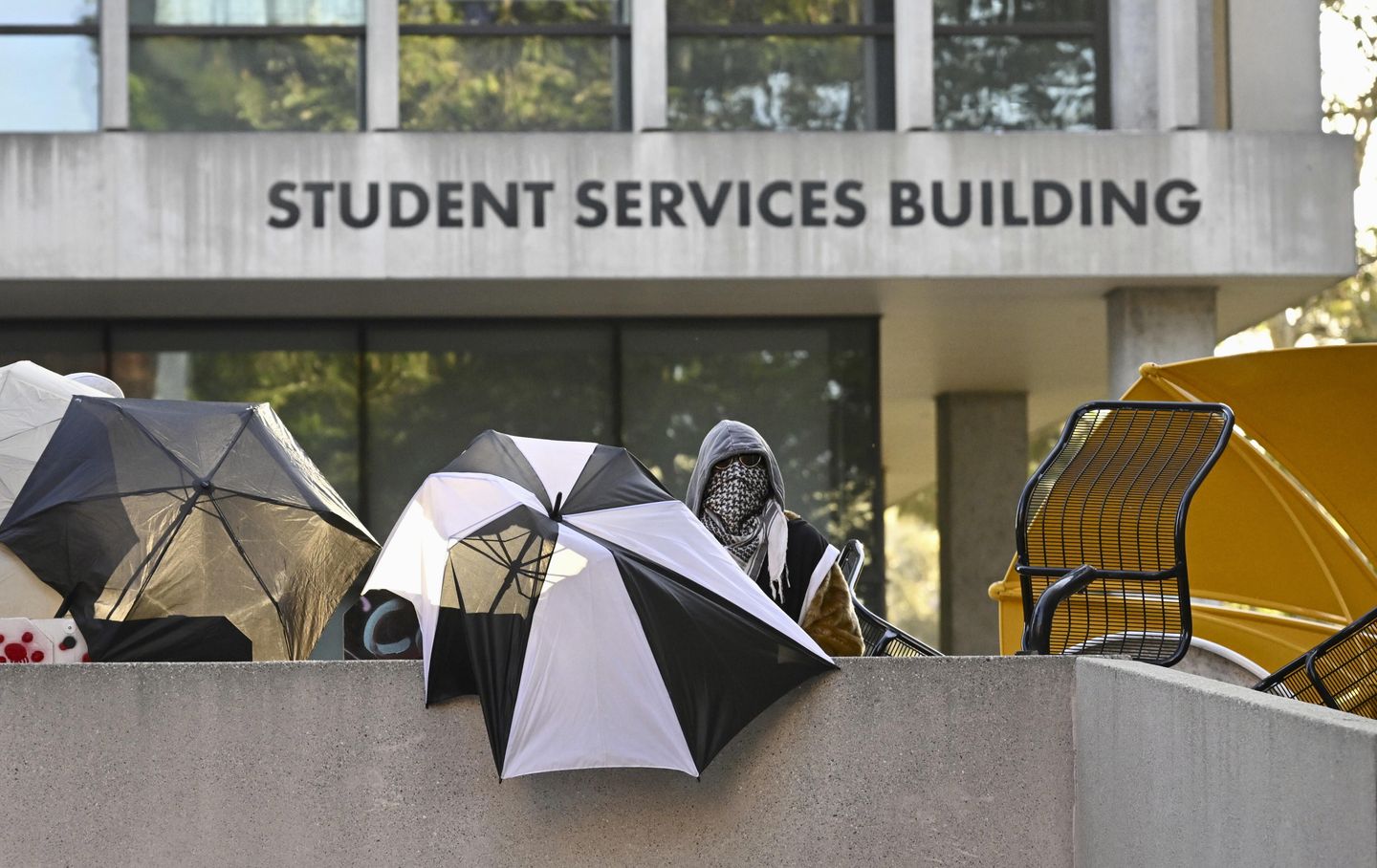The president of California State University, Los Angeles, has made a bold statement in response to recent protests on campus. In the wake of demonstrations against Israel’s military actions in Gaza, which resulted in some protesters occupying and causing damage to a building on campus, the university’s leader has declared that those involved in the protests are no longer welcome on campus.
The protests, which began as a peaceful demonstration against Israel’s war with Hamas in Gaza, took a destructive turn when a group of protesters entered a building on campus and caused significant damage. The incident occurred while the university president was inside the building, prompting her to take action against those responsible for the chaos.
In a public statement, the president expressed her disappointment in the behavior of the protesters, stating that their actions were not in line with the values of the university. She emphasized that while the university supports freedom of speech and peaceful protest, there is no place for violence or destruction on campus.
The president’s decision to ban the protesters from campus has sparked a debate among students and faculty. Some have praised her for taking a strong stance against violence, while others have criticized her for limiting the rights of those who wish to express their opinions through protest.
Despite the controversy surrounding her decision, the president has stood firm in her decision to ban the protesters from campus. She has made it clear that the safety and security of the university community are her top priorities, and that she will not tolerate any behavior that puts others at risk.
In response to the ban, the protesters have vowed to continue their demonstrations off-campus. They have expressed frustration with the president’s decision, arguing that they have a right to protest peacefully on campus and that the ban infringes on their freedom of speech.
The protests at California State University, Los Angeles, are just one example of the growing tensions surrounding the conflict between Israel and Hamas. As the violence in Gaza continues to escalate, emotions are running high on college campuses across the country, with students and faculty taking sides and engaging in heated debates about the situation.
The president’s decision to ban the protesters has raised questions about the limits of free speech on college campuses. While universities are traditionally seen as places where diverse viewpoints can be expressed and debated, there are also rules and regulations in place to ensure the safety and security of the campus community.
The incident at California State University, Los Angeles, serves as a reminder of the challenges that universities face in balancing the principles of free speech with the need to maintain order and security on campus. As tensions continue to rise both on campus and around the world, university leaders are tasked with navigating these complex issues and ensuring that all members of the university community feel safe and welcome.
In the meantime, the protesters who have been banned from campus are exploring other avenues to continue their activism. Some are organizing off-campus demonstrations, while others are seeking legal recourse to challenge the president’s decision.
As the situation unfolds, it is clear that the protests at California State University, Los Angeles, have sparked a larger conversation about the rights of protesters, the limits of free speech, and the responsibilities of university leaders in times of conflict. It remains to be seen how this debate will play out in the days and weeks to come.









